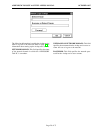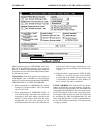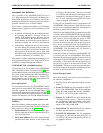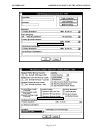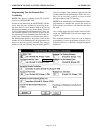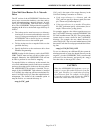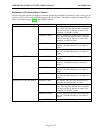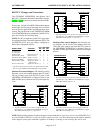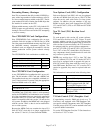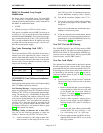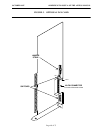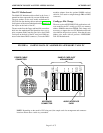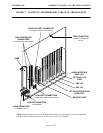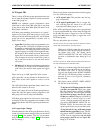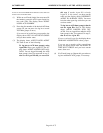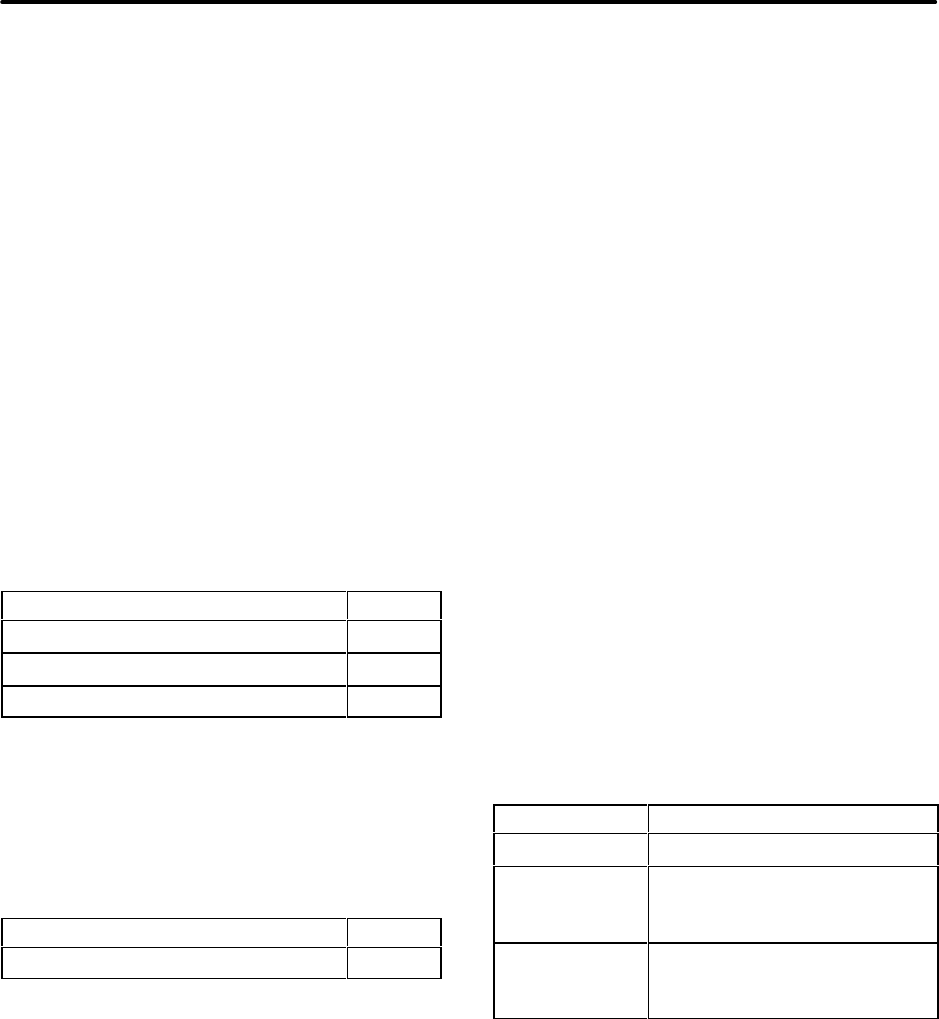
ADDENDUM TO ISSUE 4 OF THE AXXESS MANUAL OCTOBER 1997
Page 37 of 73
Preventing Memory Shortages
Inter-Tel recommends that fully loaded AXXESS Sys-
tems, with a large number of trunks and heavy call traf-
fic, have extended memory added on the CPU. The kit
(part number 828.1405) contains four RAM chips that
are installed in sockets on the CPU.
Without added memory on the CPU, fully loaded AX-
XESS Systems may periodically reset due to memory
shortages. The reset is the result of the CPU attempting
to recover memory.
New CPU020/PCM Card Configurations
New CPU020/PCM Card combination kits are now
available. Each kit includes a CPU020 Card, a PCM
Card, the proper boot ROM and memory map PAL, and
any additional memory components required. The
combined cards are shipped pre-assembled, with the
current production version system software already
loaded.
The CPU020/PCM Card combinations available are:
CPU020/PCM COMBINATION PART NO.
CPU020-Q/PCM-F (CPU 512 Master) 550.9015
CPU020-X/PCM-F (CPU 512 Slave) 550.9016
CPU020-D/PCM-D (CPU 256) 550.9017
New CPU/MEM Card Configuration
A new CPU/MEM Card combination kit is now avail-
able. The kit includes a CPU Card and a MEM Card.
The combined cards are now compatible with both ver-
sion 3.X and version 4.X systems. Only the appropriate
Premium ROMs need to be added.
CPU/MEM COMBINATION PART NO.
CPU/MEM (CPU 112) 550.9018
The MEM Card (550.2100), which is sold separately
and in the CPU/MEM Card combination, now contains
all of the components that were previously supplied in
kit number 828.1278 (a PAL and 2 RAM chips). This
makes it compatible with both version 3.X and version
4.X systems. In addition, the MEM Card is also shipped
with the version 2 PAL so that it can be modified for
use on older systems.
Because the MEM Card now contains the latest U19
PAL (827.8387), that chip is no longer supplied with
the version 3.2 and 4.1 (or later) Premium ROMs.
New Options Card (OPC) Configuration
Each new Options Card (OPC) will now be equipped
with the two ROMs (from kit part no. 828.1279) that
allow the card to work with version 2 or later system
software. In addition, the part numbers of the two
ROMs in the kit have been changed from 827.8078
(U3) and 827.8073 (U29) to 827.8590 and 827.8599
respectively.
New T1 Card (T1C) Revision Level
Changes
To work properly with version 4.X system software,
T1Cs must be at revision level “2.G” or later. To work
properly with the version 4.1 (or later) Primary Rate
Interface (PRI) feature and daughter card (as well as all
older versions of system software), the T1Cs must also
be equipped with two special software components —
part nos. 827.8550 (U4) and 827.8551 (U5). Revision
level “3.K” or later T1Cs should have all of the neces-
sary components already installed and will work with
any version of system software.
NOTE: Any revision level “2.G” or later T1Cs that
have U4 labeled 827.8376 and U5 labeled 827.8375
must first be equipped with an upgrade kit (part no.
828.1367) before using them with the version 4.1 (or
later) PRI feature. Revision level “2.F” or earlier T1Cs
cannot be upgraded; they must be replaced with new
T1Cs.
This information is summarized in the following chart:
T1C REV. LEVEL SYSTEM SOFTWARE LEVEL
up through 2.F v2 or v3 T1 only
2.G to 3.J v2–v4 T1, and v4.1 (or later)
PRI (if equipped with 828.1367
kit and PRI Daughter Card)
3.K or later v2–v4 T1, and v4.1 (or later)
PRI (if equipped with PRI
Daughter Card)
T1 Gain Control (TGC) Daughter Card
If experiencing excessive E&M gain levels on a T1
Card that is not equipped with a PRI Daughter Card,
two special software components and a TGC Daughter
Card (kit part no. 828.1397) can be attached to the card
to provide 6dB of attenuation.
To use the TGC Daughter Card, the T1 Card must be at
revision level “2.G” or later.



